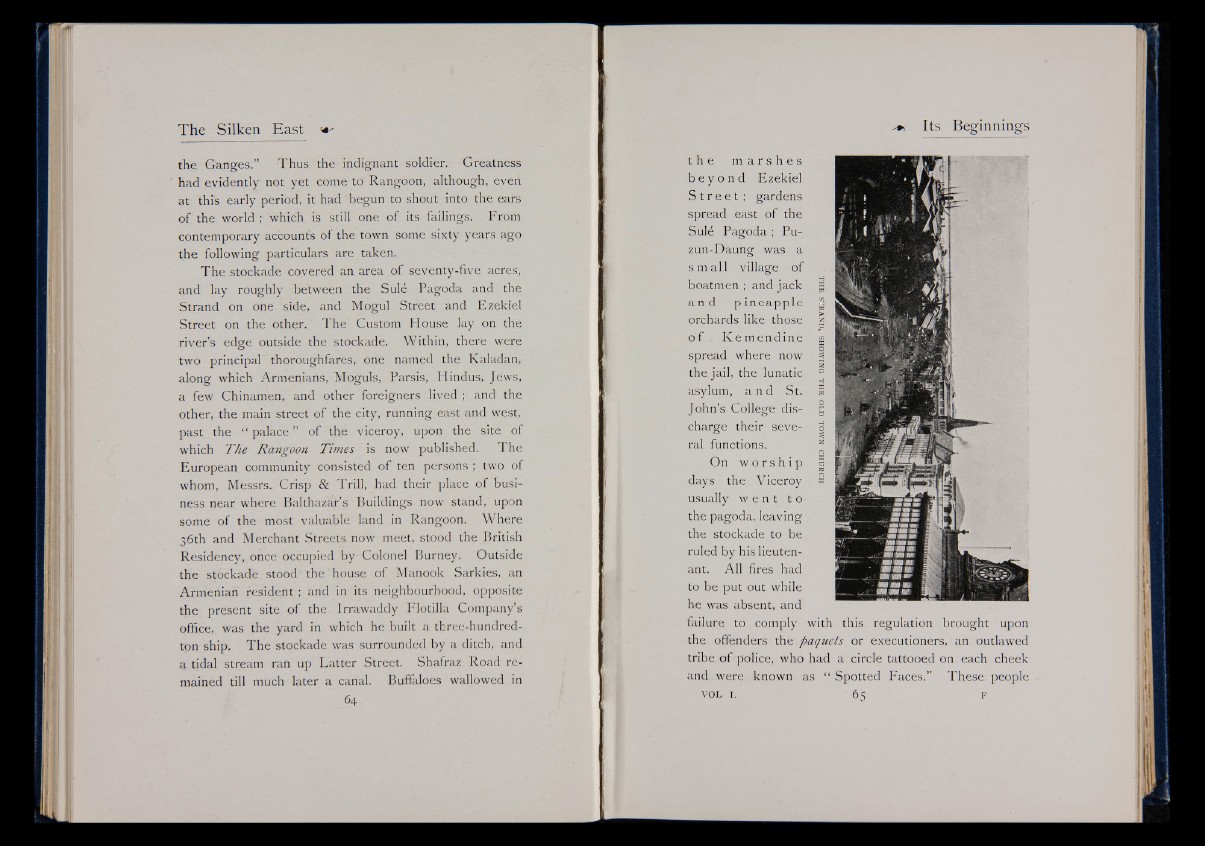
the Ganges.” Thus the indignant soldier. Greatness
had evidently not yet come to Rangoon, although, even
at this early period, it had begun to shout into the ears
of the world ; which is still one of its failings. From
contemporary accounts of the town some sixty years ago
the following particulars are taken.
The stockade covered an area of seventy-five acres,
and lay roughly between the Sulé Pagoda and the
Strand on one side, and Mogul Street and Ezekiel
Street on the other. The Custom House lay on the
river’s edge outside the stockade. Within, there were
two principal thoroughfares, one named the Kaladan,
along which Armenians, Moguls, Parsis, Hindus, Jews,
a few Chinamen, and other foreigners lived | and the
other, the main street of the city, running east and west,
past the “ palace” of the viceroy, upon the site of
which The Rangoon Times is now published. The
European community consisted of ten persons ; two of
whom, Messrs. Crisp & Trill, had their place of business
near where Balthazdr’s Buildings now stand, upon
some of the most valuable land in Rangoon. Where
36th and Merchant Streets now meet, stood the British
Residency, once occupied by Colonel Burney. Outside
the stockade stood the house of Manook Sarkies, an
Armenian resident ; and in its neighbourhood, opposite
the present site of the Irrawaddy Flotilla Company’s
office, was the yard in which he built a three-hundred-
ton ship. The stockade was surrounded by a ditch, and
a tidal stream ran up Latter Street. Shafraz Road remained
till much later a canal. Buffaloes wallowed in
64
t h e m a r s h e s
b e y o nd Ezekiel
S t r e e t ; gardens
spread east of the
Suld Pagoda ; Pu-
zun-Daung was a
smal l village of
boatmen ; and jack g
a n d pineapple g
orchards like those g
o f Kemendine ' gp
spread where now I
the jail, the lunatic 0
asylum, a n d St. I
John’s College dis- g
charge their seve- o
ral functions. ;2<1g
On wo r s hi p a
days the Viceroy *
usually we n t to
the pagoda, leaving
the stockade to be
ruled by his lieutenant.
All fires had
to be put out while
he was absent, and
failure to comply with this regulation brought upon
the offenders the paquets or executioners, an outlawed
tribe of police, who had a circle tattooed on each cheek
and were known as “ Spotted Faces.” These people
v o l 1. 65 F